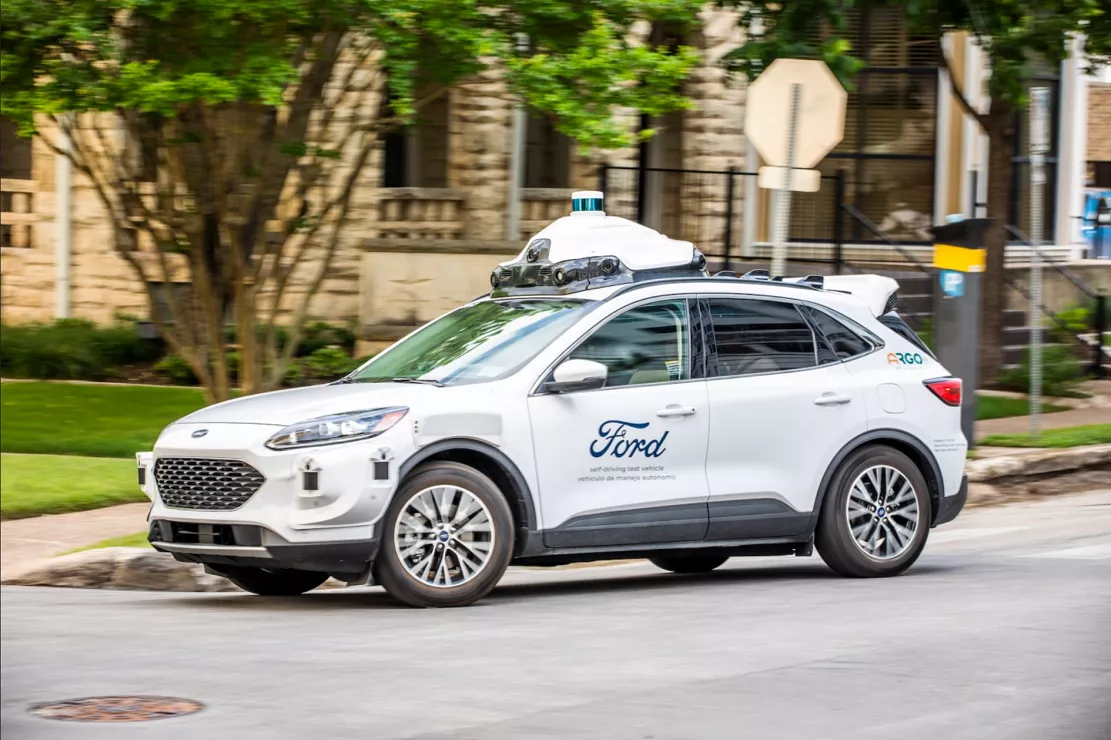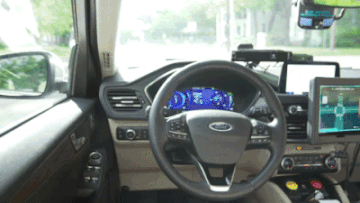
Argo's announcement comes at a time of industry consolidation. At present, only a few large companies with strong capital are moving towards self driving commercial scale operation in the United States. Although some competitors such as cruise, waymo and zoox focus on San Francisco (waymo also has driverless business in Phoenix), Argo has turned its attention to other cities such as Austin and Miami, where there are not only less regulatory environmental restrictions, but also rich business partners, technology and talent resources.
Argo said it would carry out automatic driving business during "daytime operating hours" in Miami and Austin. According to a spokesman, these hours will be extended over time and eventually include the evening. At present, this service is limited to the company's employees, who will use this service through the Argo application developed in-house.

Argo is currently working with Ford to carry out commercial pilot projects in these two cities - including integration with LYFT's car Hailing platform and grocery distribution project with Wal Mart. Argo's pilot projects with LYFT and Wal Mart will continue to be driven by human safety operators. The spokesman said that over time, the automatic driving business will be integrated with business partners. Under Florida and Texas laws, commercial fleets can charge for autonomous driving services.
Competitors such as waymo and cruise have started fully autonomous driving operations in Arizona and California, respectively. However, they run their own robot taxi and delivery services, while Argo considers itself a company that provides one-stop autonomous driving services for enterprises. Argo aims to sell its developed auto drive system to enterprises and provide a complete set of products such as fleet management, customer support and scheduling to enterprises that need these other services.
Argo's self driving business may not stop in Miami and Austin. The company is actively testing its self driving vehicles in Palo Alto, Detroit, Pittsburgh, Washington, D.C. and Hamburg, Germany. In April, Argo announced plans to build a closed track at the South Carolina technology and aviation center in Greenville County, South Carolina. This track is the company's fourth closed track facility.
The company said tests in several major cities gave it the advantages it needed to expand its autonomous driving platform into a sustainable business.
CEO Brett Browning wrote in a blog post: "Argo has been able to scale up because we have collected a large amount of data from different use cases and locations. We focus on analyzing the real-world experience of operating in the busiest neighborhoods in eight cities on two continents and facing complex traffic scenes, including unprotected turns and sheltered intersections, cyclists and people walking outside pedestrian crossings. In addition, we also analyzed seemingly endless To optimize day and night driving, because the delivery of the middle and last mile often occurs during the day, while taxi services span day and night. "
Among them, Brownings' comments on the delivery of the middle mile are particularly noteworthy. Last month, Ford CEO Jim Farley pointed out in the first quarter earnings conference call of 2022 that the company is becoming more concerned about the delivery of "intermediate links".
"As a company, we are more and more interested in cargo transportation, perhaps a strategic shift. This is consistent with our commercial vehicle business, especially our customers feel that they are more and more interested in intermediate links," Farley said at the time.
What will Argo do next
Although the company is secretive about other potential partnerships in its autonomous driving business, there are signs that Argo will not stop in Miami and Austin. The company had previously said it planned to expand its pilot delivery with Wal Mart to Washington, D.C. later this year.
However, people will be more likely to see Argo expand its influence in California, especially San Diego, and perhaps into Texas.
In the bay area, Argo has been providing free ride services to the public since it obtained the driven AV pilot license issued by the California Public Utilities Commission in July 2021 - the front seats are equipped with human safety operators.
Argo applied to the California motor vehicle administration for an automatic driving test license in February, which will enable it to test its metal in the top competition in the bay area. According to its application, Argo's goal is to test seven fully autonomous Ford fusion hybrids in Los Altos. This area is located in Palo Alto. Argo has been testing in this area since 2019 and is very familiar with this area.
According to the application, Argo's vehicles can drive on public roads - including highways, highways, urban streets, suburban and rural roads, parking lots and garages - up to 65 miles per hour. Self driving Ford cars can run 24 hours a day in all seasons and lighting conditions, or in light rain. It is reported that the only limitations of the auto drive system are off-road operation, snow, sleet, hail, dense fog and extreme environmental conditions.
The application has not yet been approved, but if Argo is licensed, it will join cruise, waymo, Apollo, autox, nuro, weride and zoox.
Outside the bay area, Argo seems to have set his sights on Santiago. According to the recruitment page on Argo's website, Argo is recruiting a number of personnel in Santiago to manage and test the autonomous fleet, including an autonomous driving operation leader, a auto drive system map expert and a auto drive system test expert.